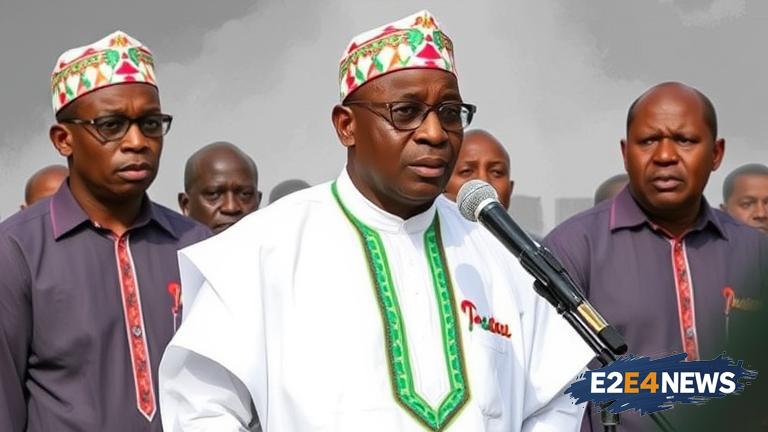The All Progressives Congress (APC) in Akwa Ibom State has been embroiled in a fresh crisis, as some stalwarts of the party have accused a Minister from the state of engaging in anti-party activities. The accusation has sparked a heated debate within the party, with some members calling for the Minister’s expulsion. According to sources, the Minister has been accused of working against the interests of the party, particularly in the build-up to the 2023 general elections. The APC stalwarts, who spoke on condition of anonymity, alleged that the Minister has been secretly meeting with members of the opposition party, with the aim of undermining the APC’s chances in the forthcoming elections. They also accused the Minister of using their position to sabotage the party’s efforts to win the elections. The crisis has been brewing for some time, with some party members expressing dissatisfaction with the Minister’s actions. The APC in Akwa Ibom has been facing internal challenges, including factionalization and infighting, which has affected the party’s performance in recent elections. The accusation against the Minister has further exacerbated the crisis, with some members calling for urgent action to address the issue. The party’s leadership has been accused of not doing enough to address the crisis, with some members alleging that they are aware of the Minister’s actions but have failed to take decisive action. The APC in Akwa Ibom has a significant following, and the crisis has the potential to affect the party’s performance in the 2023 elections. The Minister has not responded to the allegations, but sources close to them have denied the accusations, describing them as baseless and mischievous. The APC’s national leadership has been called upon to intervene in the crisis, with some members urging them to take decisive action to address the issue. The crisis has also sparked a debate about the role of Ministers in party politics, with some arguing that they should not be involved in party affairs. Others have argued that Ministers, as representatives of the party, have a responsibility to work in the best interests of the party. The APC in Akwa Ibom has a long history of internal conflicts, and the current crisis is seen as a major test for the party’s leadership. The party’s ability to resolve the crisis will have a significant impact on its performance in the 2023 elections. The crisis has also raised questions about the party’s preparedness for the elections, with some members expressing concerns about the party’s ability to win. The APC’s main opponent in Akwa Ibom, the Peoples Democratic Party (PDP), has been watching the crisis with interest, with some of its members expressing confidence that the crisis will affect the APC’s chances in the elections. The PDP has a strong following in Akwa Ibom, and the party is seen as a major contender in the 2023 elections. The crisis in the APC has given the PDP an opportunity to capitalize on the situation, with some of its members calling on APC members to defect to the PDP. The APC’s national leadership has been urged to take urgent action to address the crisis, with some members warning that the crisis could have far-reaching consequences for the party. The crisis has also sparked a debate about the future of the APC in Akwa Ibom, with some members expressing concerns about the party’s ability to survive the crisis. The party’s leadership has been accused of not doing enough to address the crisis, with some members calling for a change in leadership. The crisis has also raised questions about the party’s internal democracy, with some members arguing that the party’s leadership has not done enough to involve members in decision-making processes. The APC’s national leadership has been called upon to intervene in the crisis, with some members urging them to take decisive action to address the issue. The crisis is seen as a major test for the party’s leadership, and the party’s ability to resolve the crisis will have a significant impact on its performance in the 2023 elections.
